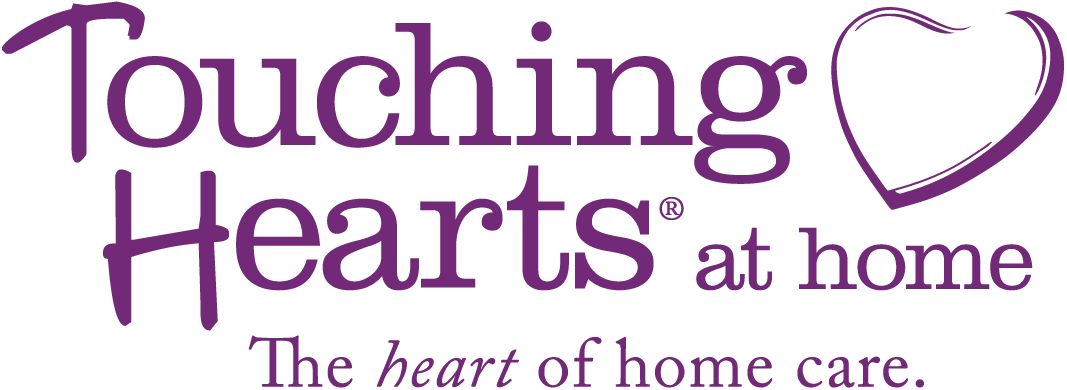At CareAcademy, our team members are passionate about making a difference in the lives of caregivers and […]
During CareAcademy’s CaregiverCon 2020 Aaron Dun, our SVP of marketing at CareAcademy, hosted a live Q&A with featured speaker Kevin Smith. Smith is the CEO and owner of Best of Care, Inc., a non-medical home care agency that employs more than 400 home care aides across Massachusetts. Kevin is also the board president of The Home Care Aide Council, a nonprofit trade association in Massachusetts that represents 70-plus home care agencies and tens of thousands of home care aides.
This wide-ranging discussion focused on what it's like to be a caregiver, how COVID has impacted the industry, and the opportunities ahead in the direct care profession. Kevin fielded a number of questions directly from the audience that made for an engaging . The following is an edited transcript of that conversation. Enjoy!
Setting the Stage
Kevin Smith: Let's just set 2020 aside—I don't know if you can actually do that but, for one moment, let’s try to forget everything that has happened since late winter/ early spring.
In spite of everything, we have seen so many changes along the way. With respect toward advances in professionalism in upskilling, training, education, and technology, it has made caregivers a more mobile, skilled, and legitimate section of the workforce in today's society. That's probably the thing that I'm the most proud of honestly—making changes and steering our company in a direction that gives caregivers knowledge, skills, and confidence in themselves to be excellent caregivers.
Aaron Dun: A lot of the folks who are on this call today joined our Future of Work program and may be transitioning from a different industry.
For the folks who are just breaking into the industry, maybe you can set some context about the one or two things that you really look for in caregivers that you think someone who's just joined the profession would be interested in.
Communication
Kevin Smith: If I were to identify a foundational piece of advice to giving home care a try it’s that communication is key. If you are able to communicate clearly, effectively, and successfully, whether it's with your employer, supervisor, or even your coworkers, you can go really far in the world of caregiving. And here's why:
People need information, and they need it quickly because it affects everybody's life. In the universe of your client, it affects their family members who are trying to get up and go to work every day. They need to know whether somebody is going to be late, whether somebody's going to be coming to their home, or if there is an issue where there needs to be a backup caregiver.
On the other end of that spectrum, if there's a change in the client status, we need to know everything about it so we can make sure they're getting the most appropriate level of care based on their needs. Good communicators at our company typically find job security for themselves.
Reliability
Kevin Smith: Second is reliability. Caregiving is a human experience. As much as we've heard during the pandemic about Telehealth and advances with technology and remote and virtual experiences between clients, caregivers, families, and loved ones, caregivers and home care aides who show up reliably to do that job are in high demand.
People who can recognize that this is a human need and demonstrate that they are going to be there for clients, despite everything going on, cannot be replaced. It is a passion and skill that cannot be outsourced.
If you can communicate effectively, and you can demonstrate that you're a reliable person with your attendance, then you can really get ahead as a caregiver, whether you're working privately, for a family, or for an agency like mine.
Aaron Dun: Now looking at people who are in the home and engaging with the client, are there any particular character traits, skills, or things that make somebody a really good caregiver versus someone who can't quite get it?
Kevin Smith: You've got to know situationally what is going to work best for each of your clients, because an approach one client may love may not work for the next family. You need to understand family dynamics in the home, and you need to understand your client’s personality. The best way to do that is through listening, paying attention, and picking up on prompts, whether they're verbal or nonverbal. You can set yourself apart by being versatile, customizing your personality, and listening.
Aaron Dun: Looking at challenges we face as a result of the COVID-19 pandemic as well as the caregiver shortage, how is that affecting you as a home care agency, and how does that create opportunities for the folks who are listening in today?
Kevin Smith: We are certainly affected by the shortage in the workforce. It's a real thing that we've been talking about for years, and it is growing. Each day that the demand for care increases and our workforce either stays the same or shrinks, it makes that gap harder for us to bridge. Whether you know it or not, if you are here on this call doing this Q&A with us, you've got some leverage as a caregiver, because we all want to employ you very badly.
I could employ another 100 home care aides today, and then would need another 100 tomorrow, just to put a dent in the demand of available work and the level of assistance needed to help clients who are waiting for care today. If you are looking to become a caregiver, then you find yourself in a position where you've got some great options. Look around for agencies who you want to work with, or maybe you want to go the independent caregiver route as well.
If you have some education and skills, are a great communicator, and are a reliable person who has some confidence in their abilities, then you truly are in demand and you don't have to work for just one company. Most caregivers work for multiple companies at a time. You don't want to put all your eggs in one basket, because if one client passes away or goes to the hospital that could mean a significant chunk of hours on your schedule then disappear.
Aaron Dun: Let's focus on that a little more. There are two different models, where you can work independently or with an agency. As a leader of a home care agency, could you talk about why it may be better to be attached to an agency? And in your role as an industry leader, could you also talk about the independent side of things?
Working for an Agency
Kevin Smith: Just speaking from an employer standpoint, we are typically in favor of individuals coming to work for our agency as opposed to going the independent route, not that one is better than the other, but here's why:
-
- Pay: As an independent caregiver, if there's ever an issue with the family or something happens, how are you going to make sure that you get paid at the end of the day?
- Workers Compensation: Employers have workers comp if you get hurt. How are you going to make sure that you're able to take care of yourself and continue to receive benefits when you are working independently?
- Benefits: At my agency, Best of Care, we have a 401k if you want to participate in that. This added benefit can be rare in the industry, but we still offer it. We also have health insurance, disability insurance, vision insurance, cancer insurance, and all of the voluntary types of benefits that you would expect from a company in home care.
- Ongoing Education: We are actually a CareAcademy client, so every caregiver employed by Best of Care uses CareAcademy to complete their required training. CareAcademy makes their training available to you on your mobile device, which allows us to put the training in your hands to complete it at your own speed when you want.
That's just a few of the infrastructural support based reasons why we feel that employment in the home care industry through an agency can be more preferable to that of the independent route.
Working Independently
Kevin Smith: Let me talk about the independent route, just from a big picture, industry advocate standpoint. Working independently can be very effective as well because:
-
- State Programs: In Massachusetts where I am today, there is a program where certain people who have Medicaid can hire, train, and retain their own individual caregiver if they don't want to go through an agency. Caregivers are more than equipped to go through that program and would become a personal care assistant.
- Self Advocacy: You might feel that you can negotiate for yourself and represent yourself to a family and become their caregiver on a private pay basis. You could also become an independent contractor.
The point is, the industry wants to ensure that people who are going that route have the qualifications, skill set, and credentials to make sure that they're caring for people safely in their own private homes.
Aaron Dun: Let's now talk about the experience of how you as an agency think about matching a client with a caregiver, especially if you have a lot of caregivers in your network. Also, if you have a client who has a particular want or need, how do you go through that process of assessing the need and choosing which caregiver you put on that client's job?
Kevin Smith: The first thing we look at is what are those client’s needs, because we want to make sure that whatever the needs defined on their plan of care can be accommodated by a person with the appropriate skill set. So for example, we want to use a certified home health aide on any client who actually needs hands-on care. We want to make sure that that person has the appropriate training to do that. If somebody only needs companionship, perhaps we can use a companion who has never gone through and gotten the full 75 hours of home health aide training.
Above and beyond that, we want to drill down even more granular and say, “Let's see, is there a language that a client speaks who could best be accommodated by one of our aides who speaks that language? Is there somebody who would benefit from having a male caregiver—which is a rare commodity in this industry—because maybe they prefer having a male aide?” Lastly, we might even take a concierge level approach and say, “do you have a dietary situation or a nutritional request that might best be accommodated?”
What this speaks to on the big picture level is that companies like mine are very flexible with their aides, because we want to take your availability and try to match it up with a client. Essentially we have aides working around the clock 24/7, working as little as a half hour or one hour, all the way up to doing live-in work. We're pretty flexible because we really need staff. We will work with you based on your own availability to get you into the homes of our clients and get you some assignments.
Aaron Dun: How do you think about wages in the context of expanding the pool of caregivers and the opportunity that presents for an agency such as yours?
Kevin Smith: There are two ways to look at it. For the first one, let's look through the lens from a wage parity standpoint of state or federal reimbursed home care. If the state of Massachusetts, Connecticut, or any state really, are the payer on behalf of a client to us, that controls what we can pay an aid. In other words, if the state is going to pay me $24 per hour, that has a direct impact on how much we can pay an aid based on benefits, overhead, payroll, taxes, and administrative costs—essentially all of that stuff in between the pay rate and the billing rate. That has a really significant impact on how much we can pay our aides. Unfortunately, those reimbursement rates are not that great even in 2020, which is what keeps wages down for this industry toward that minimum wage level. We do our best to pay more at my company, which I'm proud of, but that is why we often see wages in home care being compared against Target, Walmart, Amazon, and other huge companies—those are who we are up against to try to give meaningful work at a fair rate.
That is the first thing that we're looking at. The other lens that we're looking through is private. If a family wants to pay out of pocket for care, that gives agencies like mine a little bit of latitude to negotiate that rate and pay a little bit more. I'm not saying it's going to be a dramatic difference, but those are the two different mechanisms by which companies are typically reimbursed and that has the greatest impact on wages. I know it often feels like, “Wait a minute, this company's getting $25 an hour, and I'm only getting paid $15,” but there's a lot more in between that billing rate and the pay rate that oftentimes people either aren't aware of, or they don't consider. That's definitely something that's important for people to ask about.
Aaron Dun: Thanks, Kevin. Is there anything else that you would love for the audience to hear and think about today as they make their journey into caregiving?
Kevin Smith: You're in the right industry! I know that it is a challenge after we just talked about wages, and I know that this is a job that can be tricky for people, but you really are in demand. There is great demand for this workforce because there is a workforce shortage. Any skills that you can grab, and any training that you can complete through CareAcademy through an initiative with them or locally, is absolutely worth it. There are employers literally clamoring to try to interview and employ you, so stick with it. It really is meaningful, noble work, so congrats!






